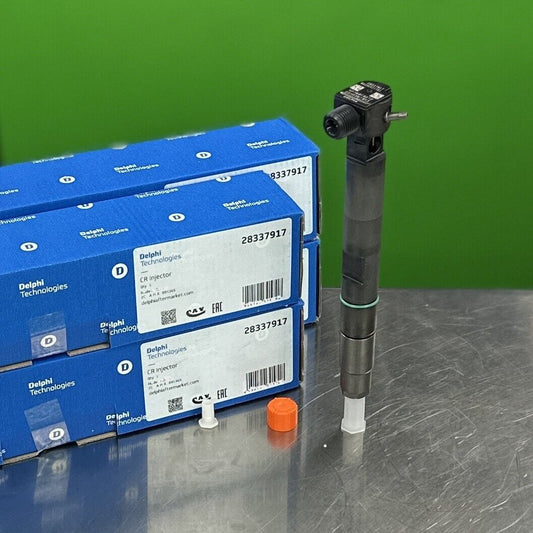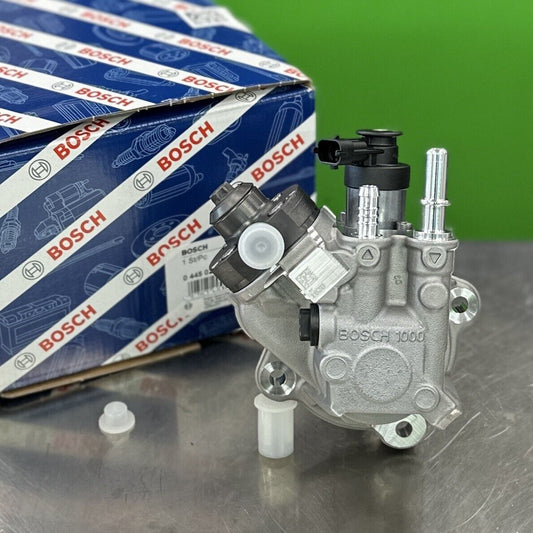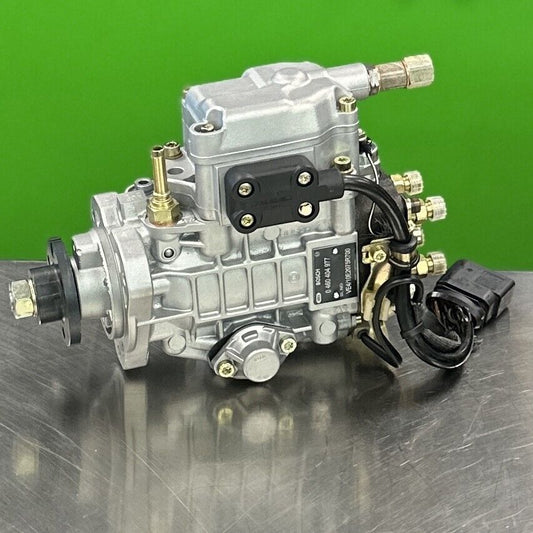How Diesel Engines Are Adapting to Climate Challenges in Oregon
As the climate challenges in Oregon intensify, diesel engines are undergoing a remarkable transformation to align with environmental concerns and regulations. The adaptation of diesel engines in Oregon is a testament to the industry's commitment to sustainability, emission reduction, and the integration of alternative fuel technologies.
Sustainable Practices
When it comes to sustainable practices in the realm of diesel engines in Oregon, the focus is on implementing environmentally friendly solutions that reduce the carbon footprint and promote a cleaner ecosystem. One of the key strategies being adopted is the use of biodiesel blends, which are derived from renewable resources such as vegetable oils and animal fats. These blends not only help in reducing greenhouse gas emissions but also contribute to a more sustainable fuel cycle.
In addition to biodiesel blends, idle reduction technologies are gaining prominence in diesel engine operations. By minimizing unnecessary idling, these technologies help in conserving fuel and reducing emissions. This not only benefits the environment but also leads to cost savings for businesses operating diesel-powered vehicles and machinery.
Moreover, the integration of renewable energy sources into diesel engine operations is another sustainable practice being embraced in Oregon. Harnessing energy from sources like solar and wind power to supplement traditional diesel fuel usage not only reduces the reliance on fossil fuels but also promotes a greener approach to energy generation.
Emission Reduction Technologies
Emission reduction technologies play a crucial role in mitigating the environmental impact of diesel engines in Oregon. These technologies are designed to minimize harmful emissions and improve air quality, aligning with the state's commitment to sustainability and environmental protection. One of the key technologies widely adopted in diesel engines is the diesel particulate filter, which effectively traps and reduces particulate matter emissions. By capturing soot particles, these filters help in reducing air pollution and promoting cleaner exhaust emissions.
Another significant emission reduction technology is selective catalytic reduction (SCR), which involves injecting a liquid reductant into the exhaust stream to convert harmful nitrogen oxides into nitrogen, water, and carbon dioxide. SCR systems are highly efficient in reducing NOx emissions, contributing to better air quality and compliance with emission standards. Additionally, exhaust gas recirculation (EGR) systems are commonly used in diesel engines to lower combustion temperatures and reduce the formation of nitrogen oxides, further enhancing emission control.
These advanced technologies not only help in meeting stringent emission regulations but also promote sustainable practices in diesel engine operations. By integrating emission reduction technologies into diesel engines, Oregon is moving towards a cleaner and greener transportation sector, fostering a healthier environment for its residents and wildlife. The continuous evolution of emission reduction technologies reflects the industry's commitment to environmental stewardship and innovation in addressing climate challenges.
Alternative Fuel Options
As Oregon strives to combat climate challenges, the adaptation of diesel engines to alternative fuel options plays a crucial role in reducing greenhouse gas emissions and lessening dependence on traditional diesel fuel. The state is witnessing a significant shift towards embracing natural gas, propane, and electric powertrains as viable alternatives to conventional diesel fuel.
Among the alternative fuel options gaining traction in Oregon, natural gas stands out for its cleaner burning properties and lower emissions compared to diesel. Propane, another promising alternative, offers environmental benefits and cost savings, making it an attractive choice for fleet operators looking to reduce their carbon footprint.
Electric powertrains are also emerging as a sustainable solution for diesel engines in Oregon, providing a zero-emission option that contributes to improving air quality and reducing the overall environmental impact of transportation. The advancements in electric vehicle technology are paving the way for a cleaner and more sustainable future for diesel engines in the state.
Regulatory Compliance
Regulatory compliance is a critical aspect of the diesel engine industry in Oregon, with stringent standards and requirements set in place to ensure environmental protection and public health. Companies operating diesel engines must adhere to emission standards established by the state to reduce pollution and mitigate climate impact. These regulations aim to control harmful pollutants emitted by diesel engines, such as nitrogen oxides and particulate matter, which contribute to smog formation and respiratory issues.
Moreover, regulatory bodies in Oregon provide incentives and support for businesses that adopt cleaner technologies and practices to meet compliance requirements. This encourages the industry to invest in innovative solutions like diesel particulate filters, which trap harmful particles before they are released into the atmosphere, thus improving air quality. By complying with these regulations, companies can contribute to a healthier environment and sustainable future for Oregon residents.
Additionally, the regulatory landscape in Oregon promotes the use of alternative fuel options for diesel engines as a means of reducing greenhouse gas emissions and decreasing reliance on traditional diesel fuel. This shift towards cleaner energy sources aligns with the state's commitment to combatting climate change and transitioning towards a more sustainable transportation sector. Companies are encouraged to explore alternative fuels such as natural gas, propane, and electric powertrains to meet regulatory compliance and support environmental goals.
Furthermore, compliance requirements for diesel engines in Oregon drive innovation and technological advancements in the industry. Companies are incentivized to invest in research and development to meet regulatory standards while improving fuel efficiency and reducing emissions. This results in the adoption of cutting-edge technologies like selective catalytic reduction and exhaust gas recirculation systems, which play a vital role in minimizing the environmental impact of diesel engines.
Future Trends
As we gaze into the future of diesel engine technology in Oregon, exciting trends emerge that promise to revolutionize the industry. One of the most anticipated advancements is the integration of hybrid systems, combining the efficiency of traditional diesel engines with the eco-friendly nature of electric power. This hybrid approach not only enhances fuel efficiency but also significantly reduces emissions, paving the way for a cleaner and greener tomorrow.
Moreover, the rise of hydrogen fuel cells presents a promising alternative to traditional diesel engines. These fuel cells generate electricity through a chemical reaction, emitting only water vapor and heat as byproducts. In Oregon, where environmental concerns are paramount, the adoption of hydrogen fuel cells in diesel engines could mark a significant leap towards achieving sustainability goals and combating climate change.
Another intriguing trend on the horizon is the potential for autonomous operation in diesel engines. Imagine a future where these engines can intelligently navigate routes, optimize fuel consumption, and minimize emissions without human intervention. This autonomous technology not only enhances efficiency but also ensures a more environmentally conscious approach to diesel engine operations in Oregon.
As we witness these future trends unfold, it becomes evident that the landscape of diesel engine technology in Oregon is rapidly evolving towards a more sustainable and eco-friendly direction. By embracing advancements in hybrid systems, hydrogen fuel cells, and autonomous operation, the state is poised to lead the way in mitigating climate challenges and fostering a cleaner environment for generations to come.
Frequently Asked Questions
-
What sustainable practices are being adopted in diesel engine operations in Oregon?
In Oregon, diesel engine operators are increasingly embracing sustainable practices such as utilizing biodiesel blends, implementing idle reduction technologies, and harnessing renewable energy sources. These initiatives aim to minimize the environmental impact of diesel engine operations and promote eco-friendly practices.
-
What are the latest emission reduction technologies being implemented in diesel engines in Oregon?
The latest emission reduction technologies in diesel engines in Oregon include diesel particulate filters, selective catalytic reduction systems, and exhaust gas recirculation mechanisms. These technologies work towards achieving cleaner air quality and reducing harmful emissions from diesel engines.
-
What alternative fuel options are available for diesel engines in Oregon?
There is a shift towards alternative fuel options for diesel engines in Oregon, with choices such as natural gas, propane, and electric powertrains gaining popularity. These alternatives aim to decrease greenhouse gas emissions and lessen the reliance on traditional diesel fuel, promoting a more sustainable future.
-
How is regulatory compliance for diesel engines managed in Oregon?
Regulatory compliance for diesel engines in Oregon involves adhering to emission standards, meeting compliance requirements, and taking advantage of incentives to adopt cleaner technologies. These measures are essential to align with environmental goals and ensure the responsible operation of diesel engines in the state.
-
What are the future trends predicted for diesel engine technology in Oregon?
The future trends in diesel engine technology in Oregon include advancements in hybrid systems, the integration of hydrogen fuel cells, and the development of autonomous operation capabilities. These innovations aim to enhance efficiency, reduce the carbon footprint, and drive the evolution of diesel engines towards a more sustainable future.



